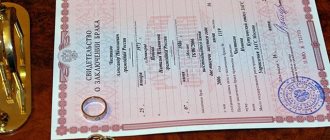Today, when it comes to the imperfection of the family institution in the Russian Federation, the first thing that comes to mind is fathers who abandoned their family and were forced to pay financial penalties. At the same time, few people who are not faced with the problems of the issue know about the existence of forced payments by children to their parents. But the modern family institution and different relationships between children and their parents sometimes force children to pay alimony to the parents of pensioners.
Difference between retired parents and retired spouses
It is worth noting one feature right away. There are two different articles in Russian legislation, each of which implies different laws, but one wording. “Alimony for pensioners” can mean not only due payments to parents, but also to former spouses. Let's take a brief look at the main differences and governing laws.
Alimony for retired spouses
According to Art. 89 of the RF IC there is a situation in which a spouse, even if he has children over 23 years of age, will be obliged to pay his former cohabitant mandatory maintenance.
This is possible subject to the following basic conditions:
- Legislative severance of relations (divorce proceedings) occurred no later than 3 years before the spouses’ retirement.
- In the last years before retirement, the spouse worked actively or was declared disabled for objective reasons.
In this case, upon retirement and lack of maintenance, a person can demand alimony payments from his spouse. In the case of a marriage contract, which is increasingly used when concluding morganistic marriages in the Russian Federation, this clause is separately stipulated in the contract. If it is not specified, you can be guided by Art. 90 RF IC. In the event that the terms of the agreement do not recognize a claim to property and alimony payments after the end of the divorce process.
Interesting fact: Despite the fact that usually the main recipients of alimony payments are females, the legislation implies a large amount of payments in relation to male pensioners, although they rarely turn to the judicial authorities to collect due payments after a divorce process.
Receiving alimony is impossible if the divorce process ended after the retirement of one of the spouses, or if both people violated the terms of the legislation of the RF IC, Chapter 4.
Alimony for parents
Applications for child support payments to parents are an increasingly common phenomenon in the Russian Federation. At the same time, legal proceedings and legislative acts are also included in Chapter 4 of the RF IC and are regulated by Articles 85-88. In what cases, according to these articles, can parents apply for child support payments? Everything is very simple, although it looks complicated. So, should children pay child support to retired parents? Yes, but not always.
The necessary conditions for receiving alimony payments are:
- Absence of any type of undocumented assistance during the 1st year after retirement from the child.
- Refusal to provide voluntary financial assistance in accordance with Art. 88 RF IC.
There are many exceptions to these situations. Let's take a closer look below.
Legal basis
Globally, in Russian legislation, in particular the Family Code, a whole chapter is presented for the provision of material assistance - Chapter 13 of the RF IC. But at the same time, questions regarding the receipt of alimony payments by parents from children are considered rather superficially. Basically, judicial practice is based on Art. 87 and Art. 88 of the RF IC on the maintenance of parents by adult children.
These articles cover:
- economic participation of children as assistance to parents;
- availability of necessary financial assistance.
The most interesting thing is that in most cases, alimony needs to be paid only when there is a documented refusal to provide financial assistance. Or there is a notarized document that confirms that the amount of financial assistance is insufficient. The most difficult thing is to determine the amount of voluntary assistance of adult children in relation to their parents. After all, this fact is most often a stumbling block in legal disputes. According to Russian legislation, voluntary assistance is calculated as: the cost of living, in the Russian Federation multiplied by the ratio of wages before retirement to total wages. From this total the amount of pension income received is subtracted. In this case, voluntary assistance is the difference between officially registered income and the shortfall in the subsistence level in the Russian Federation.
Interesting fact: As practice shows, if the child’s parent worked in an official government position, then the sufficient amount ranges from 1000-2000 rubles at the time of 2017.
When should children pay child support?
Obtaining mandatory child support from children is not as easy as it seems. To do this, you first need to submit a document about receiving voluntary assistance from children. In this case, they must notarize the fact that they are actively involved in supplying the parent with food and medicine (if they have official employment and a fixed income).
If a person refuses documentation of assistance, or tries to evade notarized fixed assistance, then the parent is obliged to provide the lawyer with a document about his own incapacity for work, the presence of a shortage of funds (usually associated with the fact that treatment costs are several times higher than income).
Only in this case can a person demand alimony from their children to retired parents.
Neediness
To receive monthly payments from children, proof of need for financial support is required. For this, the following factors are taken into account:
- the amount of earnings, pension or other types of payments;
- the amount of income from outside sources (for example, from renting out real estate);
- the ratio of income and mandatory expenses of parents - such expenses include payment for housing and communal services, food costs, etc.
The amount of payments will be influenced by the financial and marital status of the children, however, even with a minimum level of income for the child, he cannot avoid the assignment of alimony. The court will determine the amount of monthly payments that the child can pay without a significant drop in the standard of living of his family.
To confirm the need for assistance, the following documents are submitted to the court:
- certificate from the employer (disability or retirement age does not deprive the possibility of employment, therefore the court examines the certificate from the employer);
- certificate from the Federal Tax Service on income for the previous year or other reporting period;
- a certificate from the Pension Fund of the Russian Federation about the amount of paid pension, disability benefits, etc.;
- documents on the provision of benefits for travel, utilities, etc.
The nature and size of the current costs necessary for a normal life are also documented - certificates of tariffs for housing and communal services, receipts for the purchase of food, medicine and clothing are submitted to the court.
Cases of exemption from alimony
Let's take a closer look at when children do not have to pay child support for the maintenance of pensioner parents:
- The parents were divorced and one of them did not take part in raising the child. In this case, the parent does not fulfill his obligations in accordance with Art. 83 of the RF IC, which automatically deprives him of the right to forced assistance from the child.
- The parents were divorced and one of them did not participate in the financial support of the child. In this case, the law regulates this case as a fact of non-payment of alimony (even if there was no official application for its payment), which allows the child to similarly file a claim for non-payment of alimony payments until the entire amount is compensated in full to the extent that the parent does not have the right to receive reciprocal obligations from the child.
Note: In judicial practice there have not yet been cases where parents paid their overdue child support obligations in order to obtain reciprocal obligations from the child. Usually, for this reason, parents completely renounce any claims to both material and economic assistance.
- The income of a parent in retirement is considered sufficient for a decent living without additional support for the child. This is a fairly common reason for releasing a child from paying child support. Especially if the adult child’s income is lower than the pension payments from the state (or private pension funds) of the parent.
Note: If you are working with a private pension fund that could go bust at any time, the parent will be able to re-file a claim for child support obligations against their child.
- Divorced parents formally paid child support obligations, but no longer took any part in his life. In this case, it is formally considered that the parent does not have guardianship or parental rights, and also did not participate in the development of the child, and has nothing to do with his education or employment.
- The parent had a business and did not pay contributions to the pension fund; because of this, his unofficial income significantly exceeded the official pension. In this case, the parent has the right to file a claim against the child in order to receive forced alimony payments, but their size will either be very small, or the total delta (based on the calculations described earlier) will be negative. In the case of a negative delta, the court will not award either a fixed percentage or a flat monetary amount. The only thing a parent can count on in this case is the payment of a one-time contribution for current needs as determined by the court.
- The parent was once deprived of parental rights. In this case, despite the child’s genetic affiliation with the parent, their relationship will not be recognized, and, therefore, the parent has no right to receive child support payments.
- The parent's current spouse can fully provide for the parent's needs without the child's participation.
- The parents avoided paying child support obligations. Legally, in this case, the parents will be required to cover the amount of child support obligations before claiming similar payments from the child.
Amount of alimony payments in favor of disabled parents
When determining the amount of financial support for parents who have reached retirement age, a number of factors are taken into account, including the following:
- the financial situation of both children and parents applying for child support;
- the plaintiff has a spouse - the norms of family law establish that spouses must support each other in the material aspect;
- whether the pensioner has other children - the one of the children whose welfare is higher has the opportunity to provide financial assistance to disabled parents in a larger amount;
- the composition of the defendant’s family and the number of dependent persons.
The fact is that a disabled person who has reached retirement age has the right to turn to one of the children with a demand for financial assistance. The court, in turn, may involve other children as defendants.
Of course, the responsibility to provide assistance to disabled parents can be assigned to everyone. But if the children do not have the opportunity to systematically pay money (there is no source of permanent income), then even if the claim is satisfied, it will not be possible to practically enforce the court decision.
Particular attention is paid to debt obligations: if a loan or mortgage is issued to the defendant, the amount of required alimony may be reduced at his request.
Collection procedure
In order to correctly calculate alimony for the maintenance of parents of pensioners and its actual amount, you need to adhere to a strict procedure:
- notify your child of the need for financial assistance for their maintenance (if necessary, arguing your position under Article 88 of the RF IC);
- in case of refusal, submit a document to the notary requesting voluntary alimony in a fixed amount. Usually this amount is small (within 3 thousand rubles);
- if the person did not come to the meeting or refused to provide documentary assistance to his parent, collect basic tax statements;
- submit a claim and all necessary documents to the judicial-executive system.
It is worth paying attention to the tax and labor records of both parents of pensioners and children. After all, only in this case will child support for parents who are already pensioners be calculated based on the size of their salaries.
How does the court award alimony?
When assigning alimony to a child for the maintenance of a parent, the court pays due attention to examining the degree of need of the plaintiff, and also does not leave the financial situation of the defendant without consideration.
When deciding the issue, the court may distribute obligations among all children, taking into account the financial status of each. If the plaintiff has presented a requirement to provide for only one child, then the court independently has the right to establish such an obligation for other children. The law clearly states this.
The court decision must be made within a month from the date of application. The issue can be resolved earlier, taking into account the density of the court schedule and the number of cases before the judge. The rendered verdict is sent to the bailiffs, who are called upon to draw up a writ of execution and send it to the defendant. The defendant can challenge the decision if he fundamentally or partially disagrees with it, for example, he agrees to the obligation, but is not satisfied with the established amount of assistance.
Is there criminal prosecution for non-payment of alimony to retired parents?
What about administrative and criminal liability? In case of refusal to pay compulsorily prescribed alimony, a person may be subject to administrative liability. It will be collected in the form of:
- ban on traveling abroad (for persons without a work visa);
- additional tax audit of business;
- seizure of bank accounts;
- confiscation of funds in state banks in favor of the parent;
- a fine in the form of a fixed sum of money;
- confiscation of property worth enough to cover a three-year period for paying alimony.
If a person begins to hide from alimony collectors, he may be subject to criminal liability. The punishment for such a crime can be imprisonment for up to 3 years or up to 1000 hours of forced labor to cover the alimony debt.
Despite the existence of fairly harsh administrative and criminal penalties for non-payment of child support from children to parents, judicial practice rarely uses extreme punishment, limiting itself exclusively to confiscation of property or fines in the form of fixed small amounts.
Can parents apply for child support for their children?
Grounds for assigning alimony
| No. | Base | Comments |
| 1 | Based on a notarized agreement | The agreement is concluded only voluntarily, that is, the son or daughter must appear before the notary and sign the document. Otherwise, the parent has the right to go to court with an appropriate claim. |
| 2 | In accordance with the judicial act | Collection of alimony in favor of parents through the court is allowed only through a lawsuit. In this situation, issuing a court order will be impossible, since there is obviously a dispute about the right to alimony and its amount. |
The case will be heard with the participation of the parties, the plaintiff will have to prove the actual need for additional funds, and the defendant has the right to provide evidence of his position.
Required documents
Now let's look at how to apply for alimony for the parents of pensioners. To do this, you need to provide the following documents:
- copy of passport;
- a copy of documents confirming the relationship between the child and the parent;
- a certificate of current official and unofficial income of the parent;
- a certificate of the heir’s current income;
- a certificate of medical expenses (ideal health insurance with a legally fixed contribution amount would be ideal);
- a copy of the refusal to voluntarily accrue alimony payments from the child to the parents;
- a statement of claim to the judicial executive authorities demanding the payment of alimony.
Only in this case can the parent count on receiving child support payments. It is worth noting that the trial may drag on and the costs will far exceed the amount of child support payments. And most importantly, due to the peculiarities of the executive branch in the Russian Federation, the receipt of alimony payments may be delayed indefinitely.
A claim for alimony for parents of pensioners is possible.
Sample statement of claim for collection of alimony for parents
The statement of claim is drawn up in 3 copies: one remains with the plaintiff, the second is transferred to the court clerk, and the third is sent to the defendant so that he becomes familiar with the case materials and is ready for the start of the hearing. The application will need to provide the following information:
- name and address of the court;
- information about the plaintiff and the defendant (full name, addresses of residence and stay, contacts, and for the defendant – also place of work);
- the circumstances that prompted the plaintiff to initiate legal proceedings (disability, retirement age, inability to work and earn a living, etc.);
- a request for the collection of alimony indicating the price of the claim (how much money should be collected in the TDS format per month in monetary terms, based on the amount of expenses);
- references to specific evidence supporting the plaintiff’s claims;
- general list of applications;
- date and signature.
Optionally, the plaintiff can also indicate the preferred method of transferring funds to him - in cash (to record this act you will need to draw up a receipt each time), postal transfer (with the obligatory preservation of receipts and checks) or bank transfer.
How much can you charge?
Usually , the amount of alimony for the parents of pensioners is determined according to the formula in the family code. But, as judicial practice shows, in reality, pensioners can count on the following amount of payments:
| Situation | Payment amount |
| The parent is officially declared disabled | Up to 40% of the child’s official income. |
| The parent requires specific medical care | A fixed, fixed amount to ensure the maintenance of medical care. |
| The child's income significantly exceeds the parent's income | The cost of living, in the Russian Federation, multiplied by the ratio of wages before retirement to total wages. From this total the amount of pension income received is subtracted. |
| Income from pension payments is equal to the lower limit of the subsistence level | The cost of living, in the Russian Federation, multiplied by the ratio of wages before retirement to total wages. From this total the amount of pension income received is subtracted. |
| Voluntary alimony | The amount is determined pre-trial and drawn up by a notary. |
| Parent's income equals child's income | A small amount in hard currency. |
| The child's income is slightly less than the parents' income | The cost of living, in the Russian Federation, multiplied by the ratio of wages before retirement to total wages. From this total the amount of pension income received is subtracted. |
| The child’s income is informal and unstable | A fixed, fixed amount that must cover a parent’s basic needs during retirement age. |







